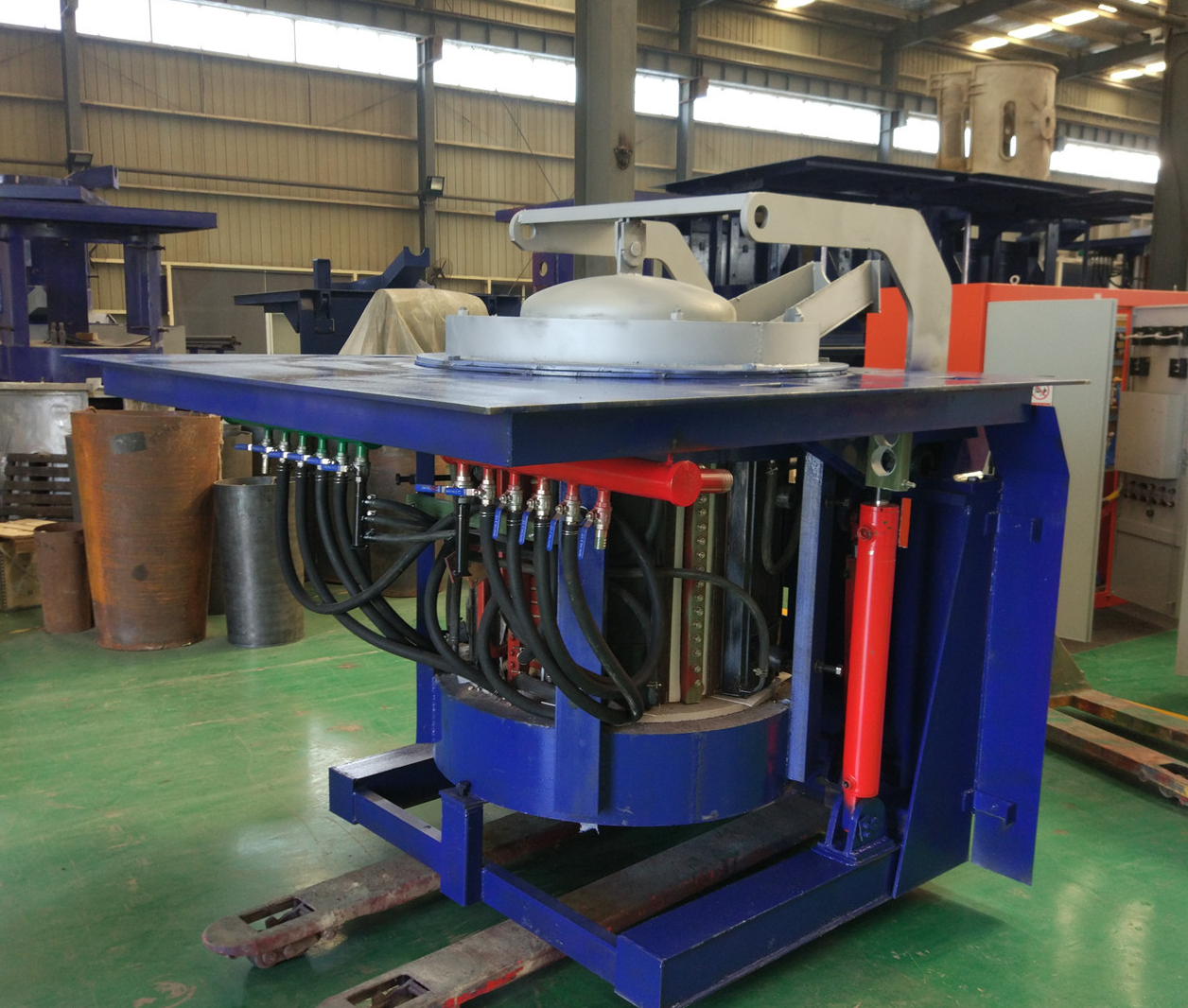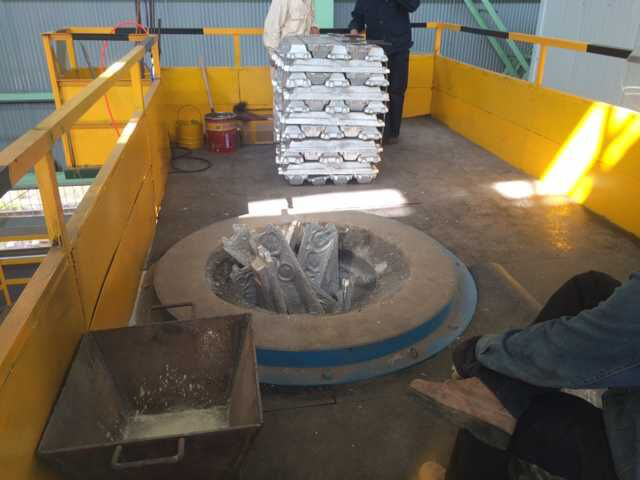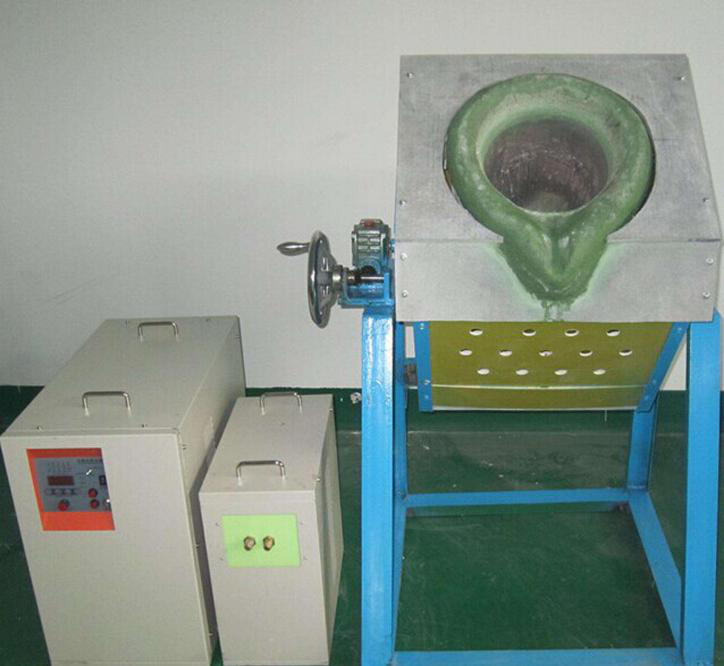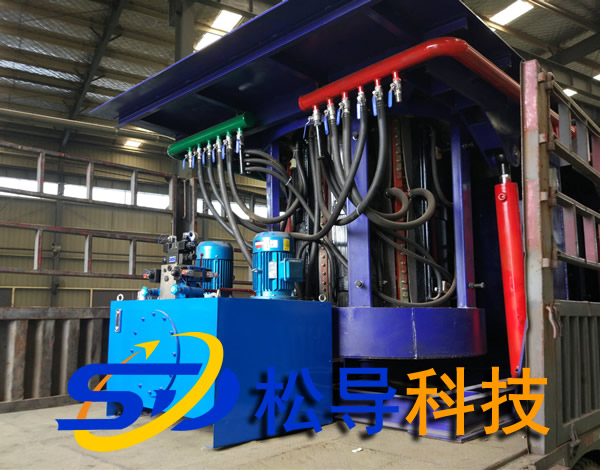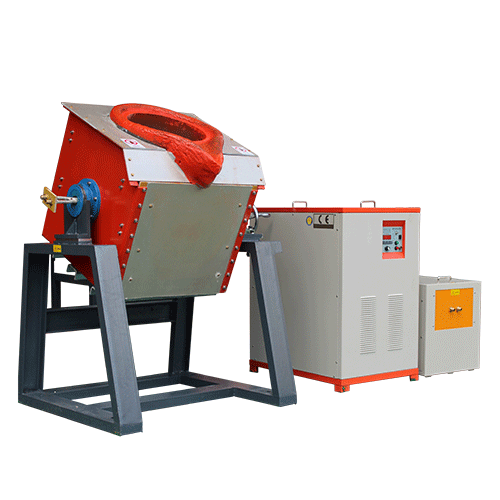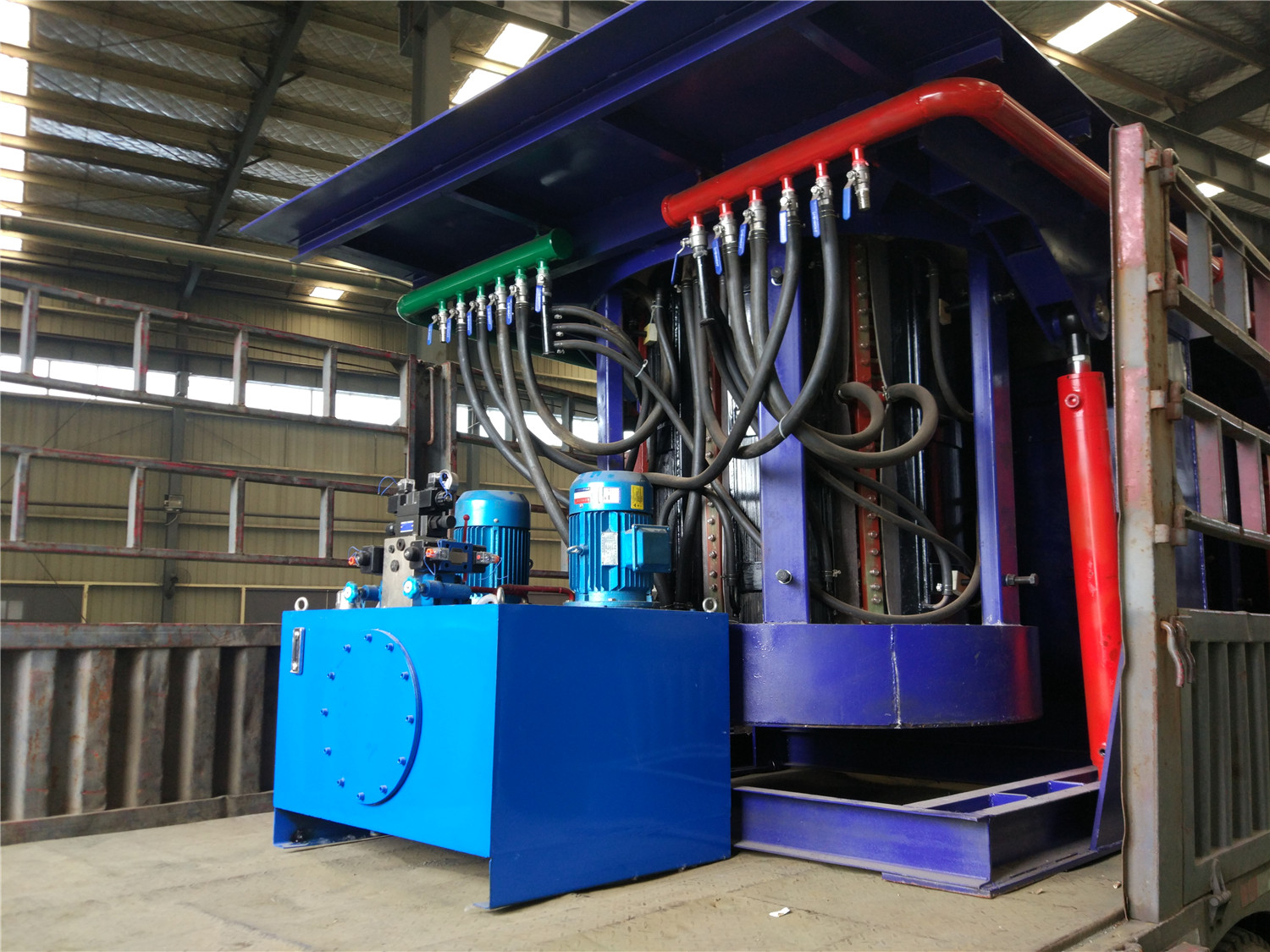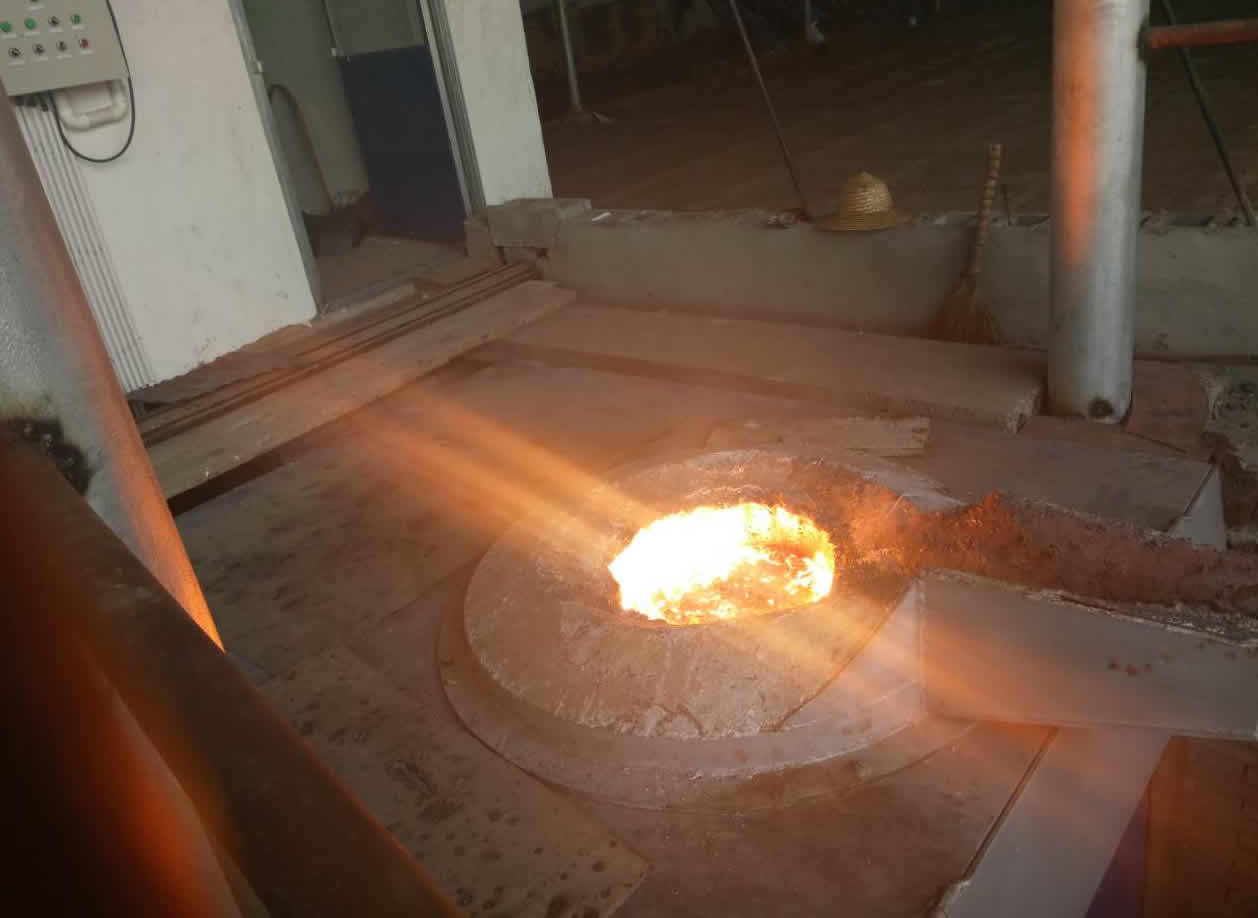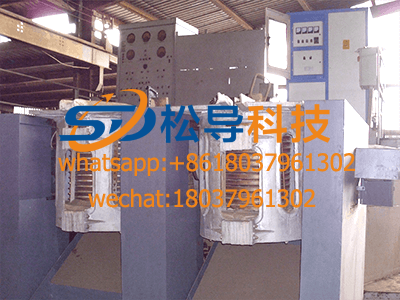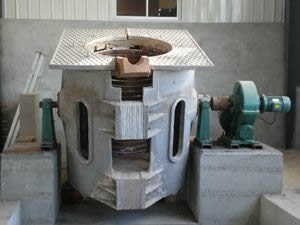How to choose a round bar forging furnace? Mainly consider from several aspects?
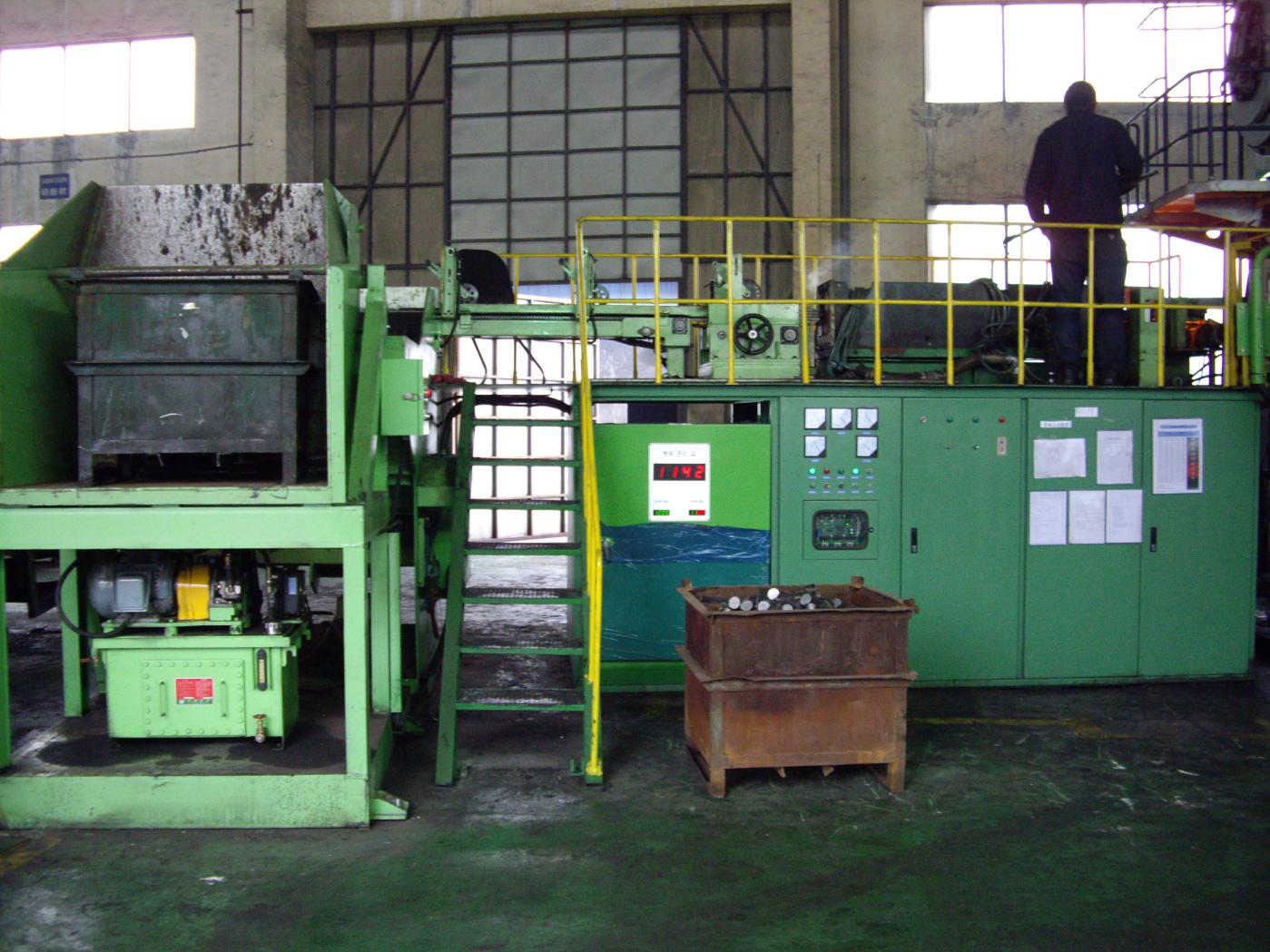
The automatic round bar forging furnace is an induction heating furnace. The complete set of equipment is composed of an intermediate frequency power supply, a capacitor cabinet, an inductor, an automatic feeding rack, a discharge rack and a control cabinet. The intermediate frequency power supply adopts a split structure design, and the power supply cabinet is a GGD standard cabinet. The capacitor cabinet and inductor have a compact structure design, which improves the heating efficiency.
Reasonably control the distance between the inductor and the heating rod , shorten the time that the red hot rod is exposed to the air, reduce the oxide scale of the rod , and reduce the energy consumption. According to the process parameters set by the user, the speed of the transmission mechanism is automatically controlled. When there is no workpiece in the sensor, the automatic control system automatically reduces the output power of the intermediate frequency power supply; when the workpiece enters the sensor, the automatic control system automatically increases the output power of the intermediate frequency power supply
1. Summary of technical parameters of round bar forging furnace
|
Round rod diameter |
Rod length |
Heating temperature |
Heating furnace power |
|
Φ16mm |
300mm |
1100 |
250kw/4000HZ |
|
Φ31-80mm |
70-480mm |
1250 |
500kw/2500HZ |
|
Φ120mm |
1500mm |
1250 |
2000kw/1000HZ |
|
The intermediate frequency induction heating furnace can be customized according to actual needs |
|||
2. Application fields of round bar forging furnace:
Forging heating: used for heating round bars, round steel, square steel, steel plates, supplementary temperature, on-line heating of blue quenching blanking, local heating, on-line forging of metal materials (such as precision forging of gears, semi-shaft connecting rods, bearings, etc.), Extrusion, hot rolling, heating before shearing, spray heating, thermal assembly, and overall heating, annealing, and tempering of metal materials.
Heat treatment: mainly for shafts (straight shafts, variable diameter shafts, camshafts, crankshafts, gear shafts, etc.); gears; sleeves, rings, disks; machine tool screws; guides; planes; ball heads; hardware tools, etc. Surface heat treatment of mechanical (automobile, motorcycle) parts and overall heating, annealing, and tempering of metal materials.
3. What parameters are required for round bar forging furnace selection?
The selection of round bar forging furnace generally requires the following parameters:
First: the shape of the workpiece to be heated, the outer dimensions, and the weight of the workpiece to be heated.
Second: the material of the workpiece to be heated (generally induction heating, only for metal conductor materials).
Third: the time required for the heating of the heated workpiece to the target temperature, and the target temperature.
Once the above three points are clear, the round bar forging furnace can be selected including matching power.
Fourth, what are the characteristics of the furnace body structure of the round bar forging furnace?
1. Furnace structure: The heating furnace of our company is designed as an integral quick-change type. When the furnace body is changed for different heating workpieces, rapid replacement can be realized.
2. Furnace lining: The furnace lining adopts silicon carbide or integral knotting method, and the service temperature is above 1450℃.
3. Protection: automatic shutdown when the water temperature exceeds 65℃.
4. Induction furnace water-cooled track: A water-cooled track is installed on the lining of the induction furnace.
5. How to calculate the power of the round bar forging furnace?
P=(0.168×200×693)/(0.24×0.6×145)=1029KW where: 0.168—average specific heat of ferrous metal; 2080—workpiece mass (Kg); 200—workpiece heating temperature rise; 0.24— Work-heat equivalent; 0.6—average efficiency (in this example, 0.6, generally 0.5~0.65, and special-shaped sensors are lower, 0.4); 145—working cycle (seconds)
Based on the above calculations, 1KHz induction heating equipment with a rated power of 1500KW can be configured to meet the needs.
6. How to choose the power frequency of the round bar forging furnace?
The selection of power frequency follows the principle of optimal heating efficiency and temperature uniformity (core-surface temperature difference). The higher the frequency, the higher the heating efficiency, but too high a frequency will easily cause the surface of the workpiece to burn. According to our experience, choose the frequency 2500KHZ , Can get the best heating effect, and will not cause the workpiece temperature to overheat.
Seven, how to choose and choose round bar forging furnace? Mainly to consider from several aspects:
1. The shape and size of the heated workpiece
For large workpieces, round bars, and solid materials, round bar forging furnaces with relatively high power and low frequency should be used; for small workpieces, tubes, plates, gears, etc., round bar forging furnaces with relatively low power and high frequency should be used.
2. The depth and area that need to be heated
The heating depth is deep, the area is large, and the round bar forging furnace with high power and low frequency should be used for the overall heating; the heating depth is shallow, the area is small, and the local heating is used. The relatively small power and high frequency round bar forging furnace should be selected.
3. Required heating rate
If the heating speed is fast, a round bar forging furnace with relatively large power and relatively high frequency should be used.
4. Continuous working hours of equipment
The continuous working time is long, and the round bar forging furnace with slightly larger power is used.
5. The connection distance between the sensing component and the equipment
The connection is long, and even water-cooled cable connection is required, so a relatively high-power intermediate frequency induction heating furnace should be used.
6. Process requirements
Generally speaking, for processes such as quenching and welding, you can choose a lower power and a higher frequency; for annealing and tempering processes, choose a higher relative power and a lower frequency; red punching, hot forging, smelting, etc., need If the heating effect is good, the power should be larger and the frequency should be lower.
7. The material of the workpiece
Among the metal materials, the higher melting point is relatively large, the lower melting point is relatively small; the lower resistivity is higher, and the higher resistivity is lower.
8. Significant advantages of round bar forging furnace:
1. Compared with traditional heating methods (oil, coal, gas), it has the obvious advantages of environmental protection, energy saving, convenient operation and low labor intensity;
2. Compared with thyristor intermediate frequency, energy saving is 10%~30%, and there is no harmonic interference to the power grid;
3. Compared with resistance furnace, energy saving is 50%~60%;
4. It has the advantages of fast heating, uniform heating, no oxide layer, and good product quality for customer products;
5. The inductor is isolated by a transformer, which is very safe.
6. Environmental protection: no pollution, noise and dust.
7. Strong adaptability: It can heat various workpieces with different shapes.
8. The equipment occupies a small area, less than two square meters, which is convenient for customers to maximize the use of production space.
9. Why is the round bar forging furnace high in efficiency?
The round bar forging furnace belongs to the induction heating furnace. Its principle is electromagnetic induction, and its heat is generated in the workpiece itself. Ordinary workers can use the round bar forging furnace to perform continuous forging tasks ten minutes after going to work, without the need for professional furnace burning workers to perform in advance Furnace burning and furnace sealing work. There is no need to worry about the waste of heated billets in the coal furnace caused by power outages or equipment failures. Due to the fast heating speed of this heating method, there is very little oxidation, and at least steel is saved per ton of forgings compared with coal burning furnaces The raw material is 20-50 kg, and the material utilization rate can reach 95%. Because the heating method is evenly heated, the temperature difference between the core and the surface is extremely small, so the life of the forging die is greatly increased in the forging, and the surface roughness of the forging is also less than 50um. The heat of induction heating is generated in the workpiece itself, so the heating is uniform, and the temperature difference between the core and the surface is extremely small. The application of the temperature control system can realize the precise control of the temperature and improve the product quality and qualification rate.

